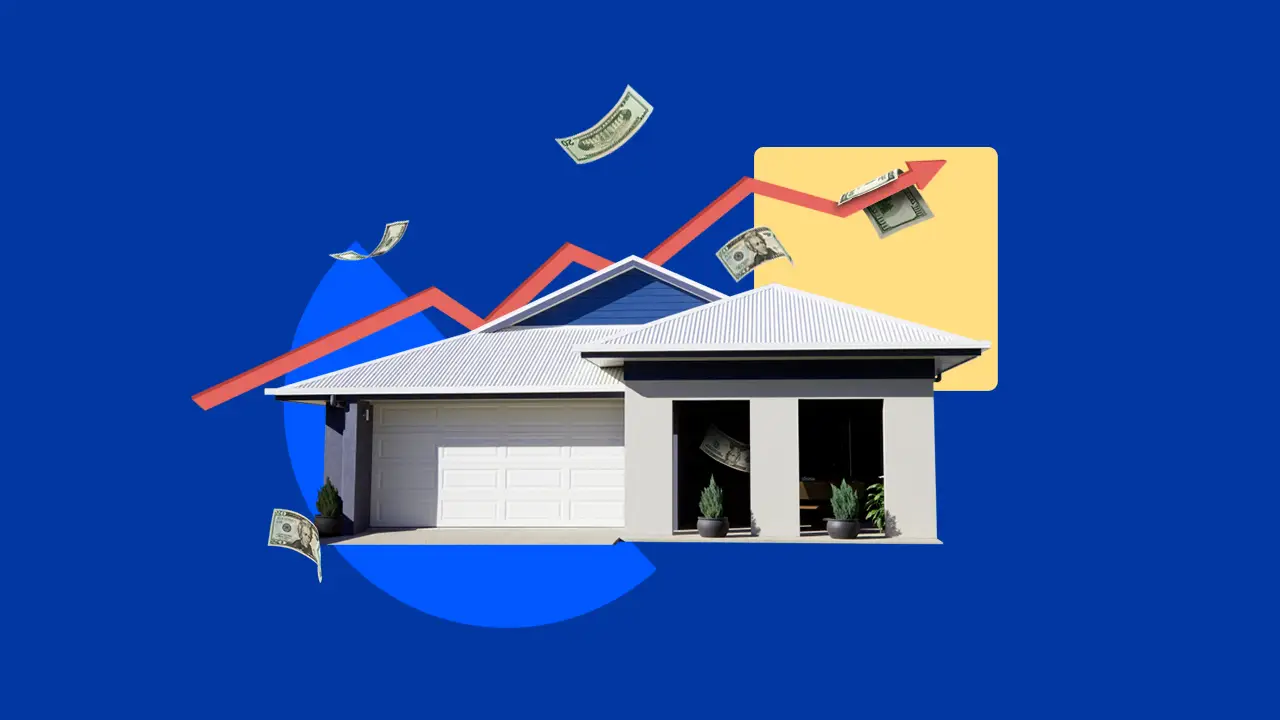U.S. Housing Market Update: Record-High Mortgage Payments and Emerging Trends
The U.S. housing market is experiencing unprecedented shifts, with median monthly mortgage payments reaching new heights. These changes are influencing buyer behavior, seller strategies, and overall market dynamics. This article delves into the factors driving these trends, examines current statistics, and provides insights into what prospective buyers and sellers can anticipate in the near future.
Surge in Mortgage Payments
As of March 2025, the median monthly mortgage payment in the U.S. has escalated to $2,807, marking a 5.3% increase compared to the previous year. This surge is attributed to two primary factors:
- Rising Home Prices: The median home-sale price has climbed by 3% year over year, reflecting sustained demand and limited housing inventory.
- Elevated Mortgage Rates: The average 30-year fixed mortgage rate stands at 6.67%, more than double the lows observed during the pandemic era.
These combined factors have intensified affordability challenges for potential homebuyers.
Impact on Home Sales
The escalating costs have led to a noticeable deceleration in home sales:
- Pending Home Sales: There has been a 4.6% decline in pending home sales year over year, indicating a cooling market as buyers grapple with affordability concerns.
- New Listings: Conversely, new listings have increased by 7.5% compared to the same period last year, suggesting that more sellers are entering the market, potentially in response to favorable pricing conditions.
This dynamic indicates a shift towards a more balanced market, where increased inventory may offer buyers more options and negotiating power.
Buyer Behavior and Market Activity
Despite high costs, certain indicators point to renewed buyer interest:
- Mortgage Applications: Mortgage-purchase applications have risen by 1% from the previous week and are up 7% year over year, signaling that some buyers are re-entering the market.
- Home Tours: Data from ShowingTime reveals a 37% increase in home tours since the start of the year, outpacing the 29% increase observed during the same period in 2024.
- Online Searches: Google searches for "homes for sale" have climbed by 12% over the past month, indicating growing interest among prospective buyers.
These trends suggest that while affordability remains a challenge, buyer engagement is resurging as individuals adapt to current market conditions.
Regional Variations
The impact of these trends varies across different metropolitan areas:
- Median Sale Price Increases: Cities like Cleveland (11.3%), Nassau County, NY (10.1%), and Newark, NJ (9.4%) have experienced significant year-over-year price growth.
- Price Declines: Conversely, markets such as Jacksonville, FL (-3.7%), Tampa, FL (-2.5%), and Austin, TX (-1.9%) have seen price decreases, offering potential opportunities for buyers in these regions.
Understanding these regional nuances is crucial for buyers and sellers aiming to navigate the market effectively.
Future Outlook
Looking ahead, several factors are poised to influence the housing market:
- Mortgage Rate Projections: Economists anticipate a gradual decrease in mortgage rates, with forecasts suggesting rates may trend down to about 6% by the end of 2026.
- Home Price Trends: While some markets may experience price deceleration, overall home prices are expected to remain elevated due to persistent demand and inventory constraints.
- Economic Indicators: Factors such as inflation, employment rates, and broader economic policies will continue to play pivotal roles in shaping the housing market landscape.
Insights
How are rising mortgage rates affecting first-time homebuyers?
Elevated mortgage rates have increased monthly payment obligations, making it more challenging for first-time buyers to afford homes. This has led some to delay purchases or explore alternative financing options.
What strategies can buyers employ in the current market?
Buyers can benefit from:
- Exploring Various Loan Options: Investigating different mortgage products to find favorable terms.
- Negotiating with Sellers: With increased inventory, buyers may have more leverage to negotiate prices and contingencies.
- Considering Less Competitive Markets: Looking into regions with declining prices or less competition can yield better deals.
Are there advantages for sellers in this market?
Yes, sellers can capitalize on:
- High Home Values: Current market conditions have elevated home values, allowing sellers to potentially achieve favorable sale prices.
- Increased Buyer Interest: Renewed buyer engagement indicates a pool of motivated purchasers.
What impact does inventory have on the housing market?
Inventory levels significantly influence market dynamics:
- Low Inventory: Can drive up prices due to competition among buyers.
- Increased Inventory: Offers buyers more choices and can lead to price stabilization or declines.
How might future economic policies affect the housing market?
Economic policies related to interest rates, taxation, and housing regulations can impact affordability, buyer behavior, and overall market stability.













